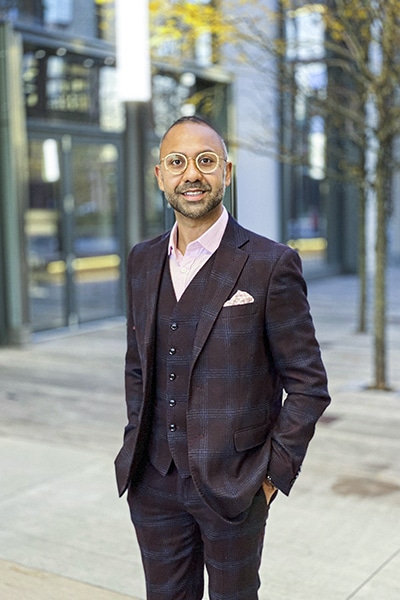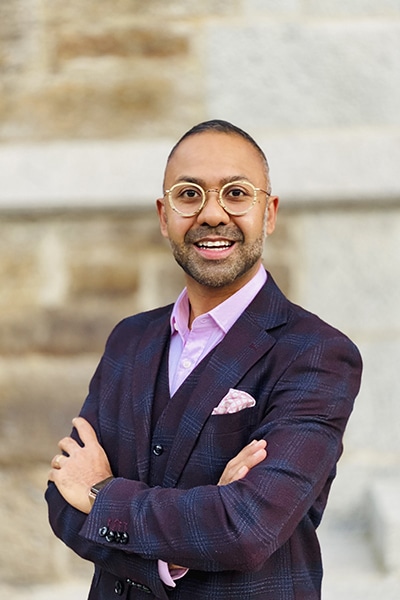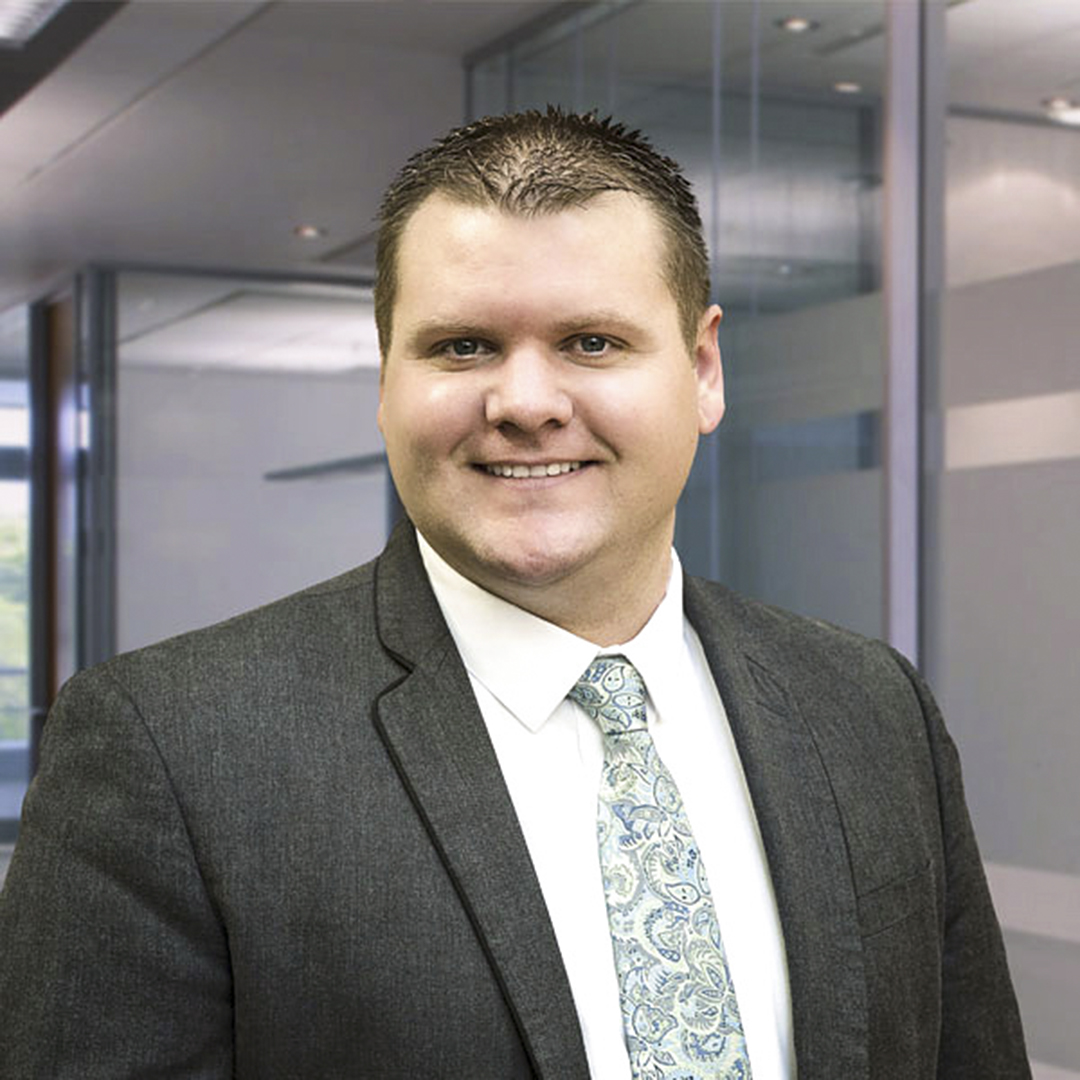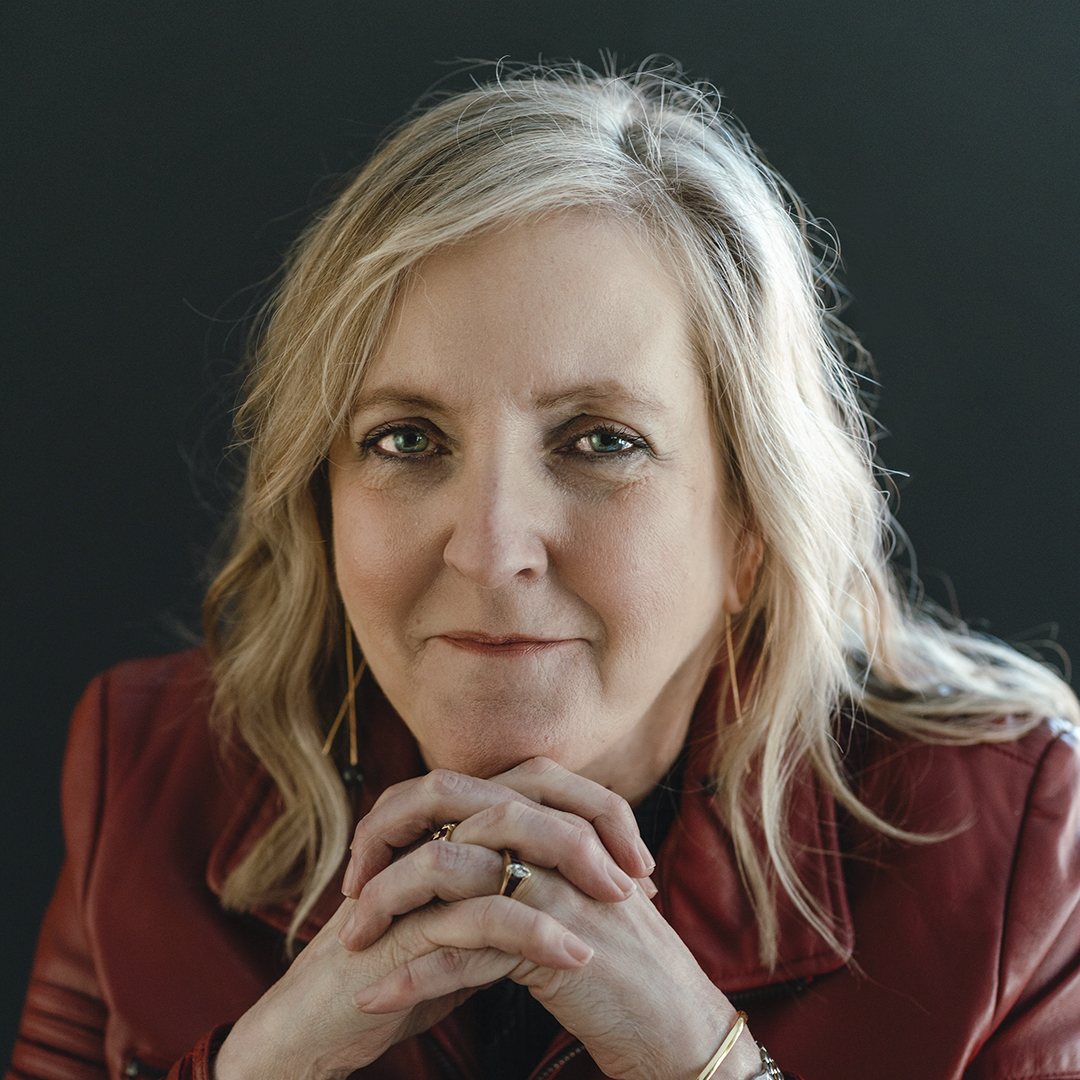“The world is getting automated, the workforce is becoming remote, and expectations of talent and organizations are changing at an astounding pace. During this transformation—accelerated by the pandemic—HR has its moment.”
That’s how Uzair Qadeer summarizes 2020. Qadeer is hard to categorize. He has degrees in liberal arts, engineering, and business. He’s lived in four countries. He speaks five languages. He’s been a professor, a consultant, and an executive. He’s worked on a factory floor, started his own business, and built best-in-class diversity and HR functions.

Qadeer’s résumé is dotted with leading names like Rutgers University, Bristol Myers Squibb, and Deloitte. Today, Qadeer is chief diversity officer at Alexion Pharmaceuticals. He reports directly to the CEO and is a member of the company’s management team. He joined Alexion in 2019 to implement an HR model that connects employee and patient experiences. Doing so, Qadeer says, will help take patient care to the next level.
“HR is changing everywhere. If we pivot accordingly, the workplace of the future will be ripe with passion, purpose, opportunity, and improved outcomes for customers,” he explains. It is a bright outlook, but Qadeer is an optimist. In fact, he’s more than an optimist—he’s agile, disruptive, and innovative. He is a human resources futurist.
So, what exactly is a human resources futurist?
Qadeer says futurists marry expertise with intuition to seek, discover, and implement industry-changing breakthroughs others might miss. “Historically, HR leaders rely on traditional skills, processes, and systems,” he explains. “Futurists change old ways of thinking to create communities of experts from disparate fields that can, together, offer something new.”
Qadeer believes that approaches rooted in the past cannot deliver solutions for tomorrow. “We need to separate trends from fads but also see patterns while they are forming so we can shape them into leading-edge approaches,” he says.
To illustrate his point, Qadeer borrows a familiar analogy from the world of team sports. “People in HR are often skating to the hockey puck, and by the time they get there, it’s gone,” he says. Qadeer says HR leaders need to look beyond benefits and employee relations and instead look to AI and automation.
“It is our job as HR leaders to design the organizations of tomorrow and incubate skills of the future. To do so, we have to build a strong futurist orientation and serve as business leaders with an HR focus, not the other way around,” Qadeer explains, pointing to ROSS, an automated, AI lawyer powered by IBM Watson.
As healthcare and other industries automate highly sophisticated skills, Qadeer says HR will become increasingly important. “HR futurists know that their function will be at the heart of their company to coordinate between technology, employees, and customers,” he explains. “The future is moving away from human resources to human experience.”
EX + CX + DX = HX
Qadeer’s human experience (HX) equation sums employee experience (EX), customer experience (CX), and digital experience (DX). “We have to connect employee and customer experiences to narrow in on key interactions and make them as meaningful and memorable as possible,” he says. At Alexion, Qadeer helped build a leading human experience function designed to do just that.
The employee-patient connection gives employees better insights into patient needs. Armed with those insights, employees create better products that serve patients and, in turn, yield superior financial results that create conditions to reward and compensate employees remarkably. It is a powerful connection-loop between delighted employees and customers.
“Belonging is the goal. We want people to feel included because of their uniqueness and not despite of it.”
The imperative transition from HR to HX is just one of three major shifts Qadeer is seeing. The second is a move from jobs to skills. “Careers or jobs might not even be a concept in the future. The future of the workforce is about experiences and skills,” he says.
Employees once built whole careers upon a specialized skill, but now, the half-life of skills is about two-and-a-half years. Qadeer argues that to succeed, we must shift our mindset from building careers to gaining experiences. Experiential talent models will enable people to rapidly learn new skills by pursuing diverse experiences.
Qadeer worked in Deloitte’s human capital consulting business, where he engaged C-suite clients to redefine every aspect of HR, including organizational development, culture, and talent management. At Deloitte, Qadeer and his colleagues helped a major client activate the first fully experiential talent model in biotech.
The team studied what experiences could yield needed skills to deliver desired short- and long-term business results. Then, they painstakingly created libraries of experiences and mapped skills on top of experiences, function by function. Almost twenty thousand employees successfully migrated to the new model. Qadeer also piloted a unique, experiential talent model at Alexion. “This has enabled our talent to learn, relearn, or unlearn skills rapidly to keep up with an ever-evolving marketplace,” he notes.
 The third key shift happening in HR, according to Qadeer, is the shift from diversity to belonging. Qadeer serves as Alexion’s first chief diversity officer. However, he’s not content with simply adopting the best diversity, equality, and inclusion (DE&I) practices. As an HR futurist, he is focused on rethinking DE&I. “Belonging is the goal,” he says. “We want people to feel included because of their uniqueness and not despite of it.”
The third key shift happening in HR, according to Qadeer, is the shift from diversity to belonging. Qadeer serves as Alexion’s first chief diversity officer. However, he’s not content with simply adopting the best diversity, equality, and inclusion (DE&I) practices. As an HR futurist, he is focused on rethinking DE&I. “Belonging is the goal,” he says. “We want people to feel included because of their uniqueness and not despite of it.”
While at Bristol Myers Squibb, Qadeer expatriated to Rome, Italy, and gained powerful insights around HR and diversity in a global context. Using such insights, Qadeer has created the “Ten Dials of Diversity.” The dials include categories like age, race, gender, sexual orientation, socioeconomic status, and neurodiversity. By implementing these dials, an organization can adjust its focus on a category based on organizational goals, culture, current events, or the needs of a specific team, office, or country.
Qadeer has implemented this framework at Alexion to build a market-leading DE&I function. In less than six months, his team engaged 6 percent of Alexion’s global workforce in helping to drive DE&I efforts. Qadeer credits his focus on Ten Dials of Diversity with securing widespread enthusiasm from global employees. “Corporations need to reimagine how they define diversity to bring unusual groups of employees together and solve their shared problems through an expansion of diversity-focused coalitions,” he says.
“I am so proud of what we have built at Alexion,” Qadeer enthuses. “Our focus on human experience has created an environment where our employees feel a sense of belonging, learn new skills rapidly, and are obsessed with serving patients. This has propelled us from being previously unranked to being ranked seventh in the Pharmaceutical Innovation Index in just over eighteen months.”
Qadeer’s entire life has put him in unique contexts. He was born in Pakistan and once attended a Catholic school, despite not being Catholic. He immigrated to the United States and experienced both the challenges and the opportunities of an immigrant story. Such dynamic experiences have trained Qadeer to imagine a world full of empathy and possibility—one in which people belong and feel liberated.
“It is my personal purpose to ‘set people free,’ because when people feel free, breakthroughs are inevitable,” he says. “Liberated people trust one another and take thoughtful risks. In business, trust leads to collaboration and risk-taking leads to innovation. When people are free, a transformative future can be imagined and created.”


